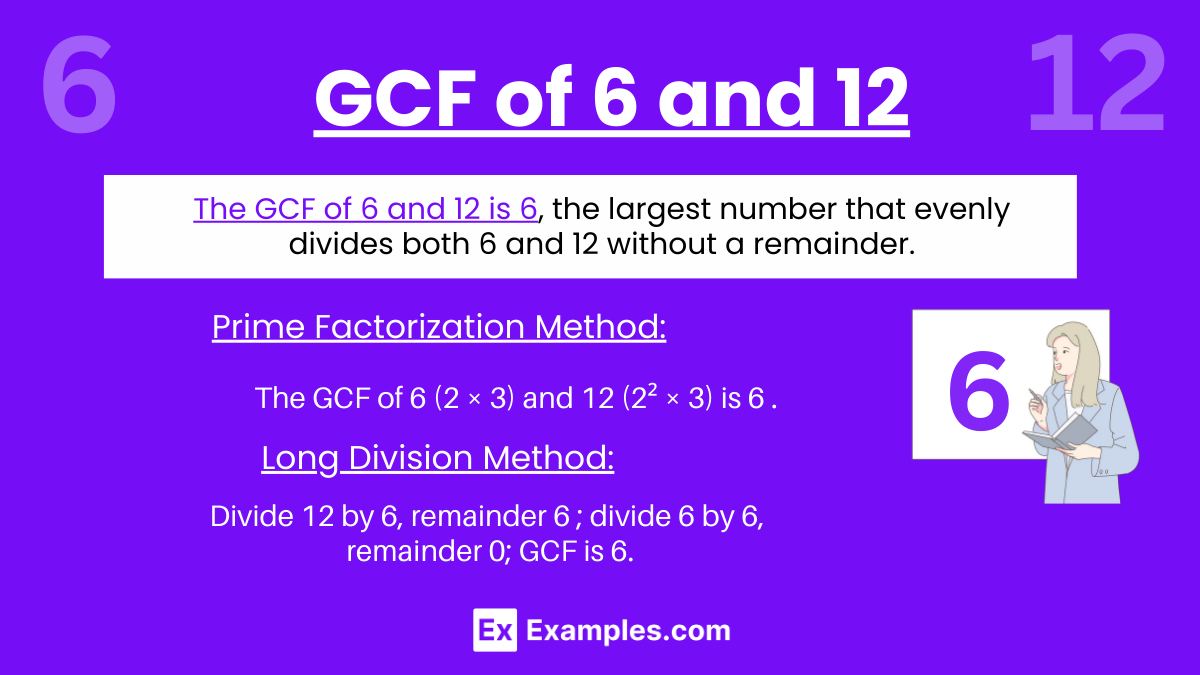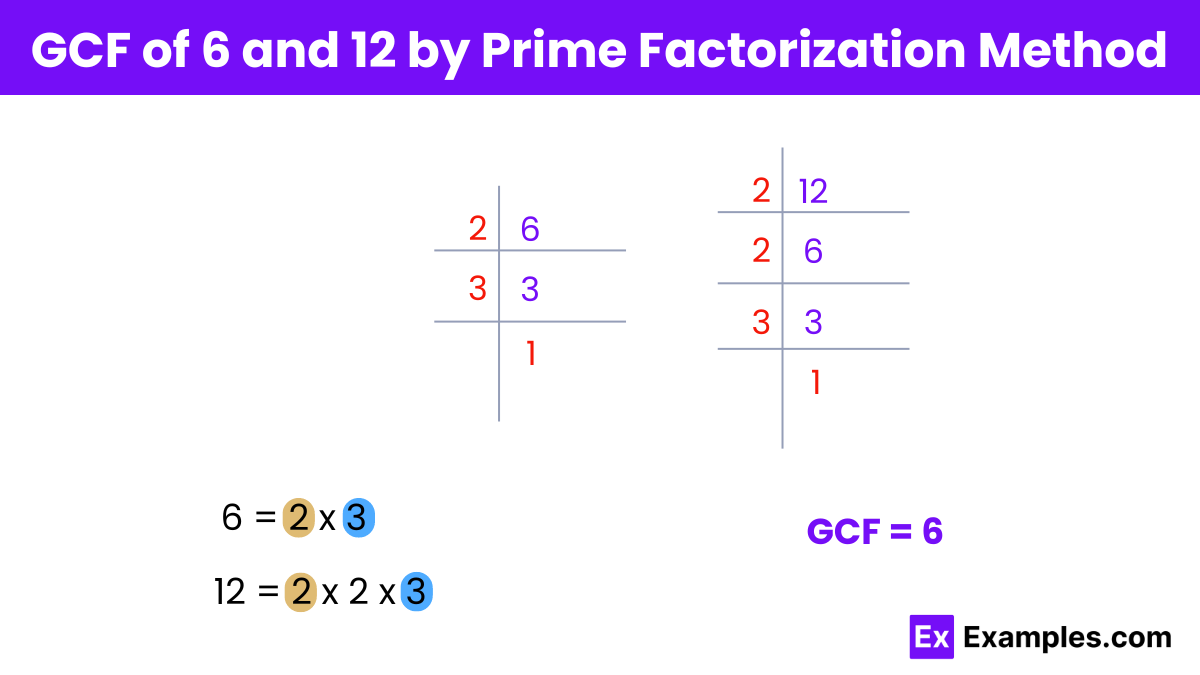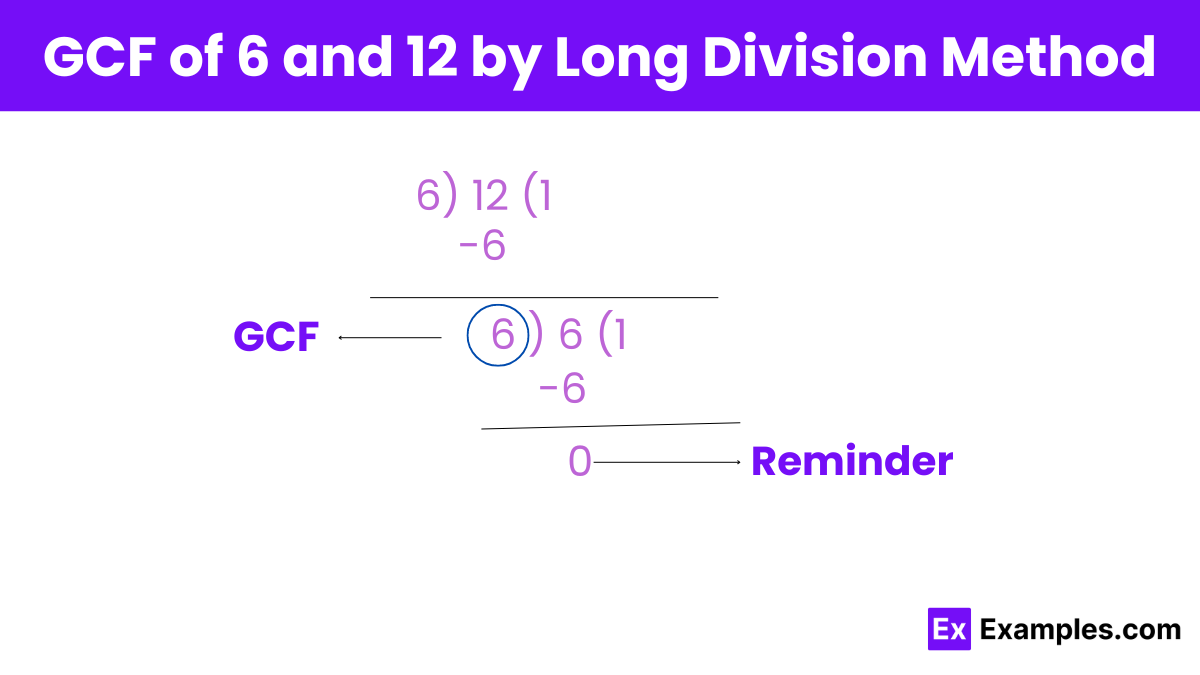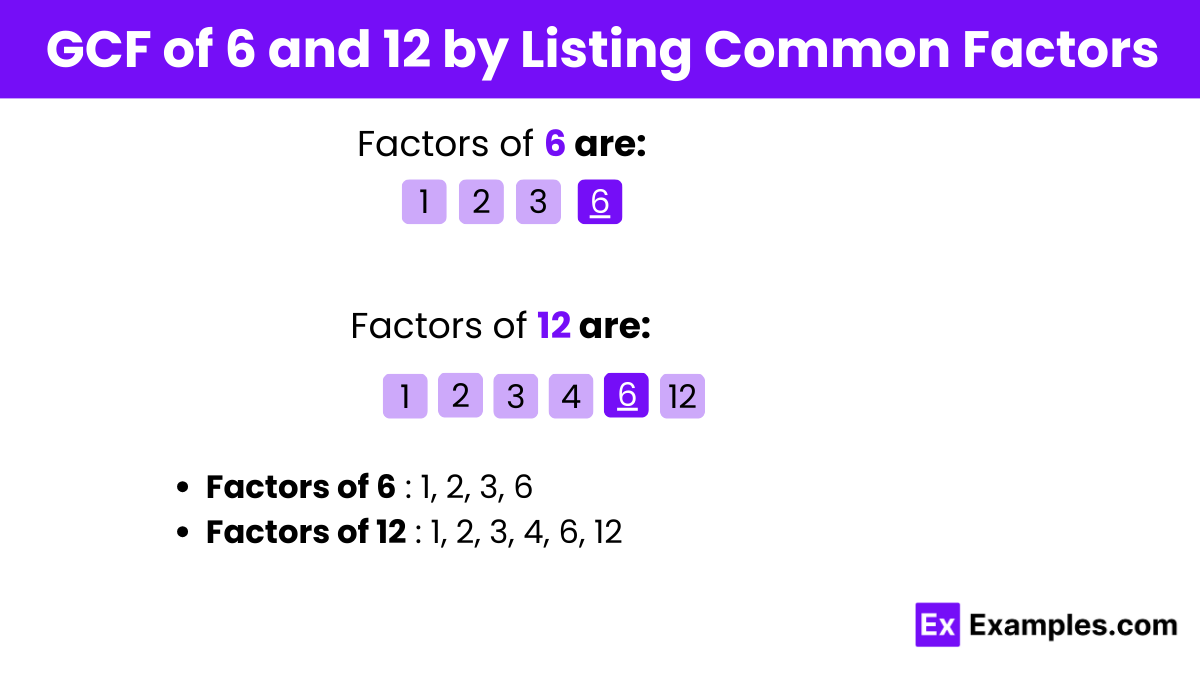What is the Greatest Common Factor (GCF) of 6 and 12?
1
2
3
6


The simplest way to find the greatest common factor (GCF) of 6 and 12 is by listing their factors. The factors of 6 are 1, 2, 3, and 6, while the factors of 12 are 1, 2, 3, 4, 6, and 12. Examining these lists, the common factors are 1, 2, 3, and 6. The largest of these common factors is 6, making it the GCF of 6 and 12. This method of listing factors is straightforward and efficient for smaller numbers, providing a quick solution to identify the highest number that divides both integers without a remainder.

To find the greatest common factor (GCF) of 6 and 12 using the prime factorization method:
Step 1: Prime factorize both numbers:
For 6: 6 = 2 × 3
For 12: 12 = 2² × 3
Step 2: Identify the common prime factors and their lowest powers:
Step 3: Multiply the common prime factors with their lowest powers to determine the GCF:
GCF = 2¹ × 3¹= 2 × 3 = 6
Therefore, the greatest common factor (GCF) of 6 and 12 by the prime factorization method is 6.

To find the greatest common factor (GCF) of 6 and 12 using the long division method:
Step 1: Start by dividing the larger number (12) by the smaller number (6).
12 ÷ 6 = 2 with a remainder of 0.
Since there is no remainder, the division process stops here.
Step 2: The divisors at this step where the remainder becomes zero is the greatest common factor (GCF).
GCF = 6.
Therefore, the greatest common factor (GCF) of 6 and 12 by the long division method is 6.

To find the greatest common factor (GCF) of 6 and 12 by listing common factors:
Step 1: List the factors of each number.
Factors of 6: 1, 2, 3, 6
Factors of 12: 1, 2, 3, 4, 6, 12
Step 2: Identify the common factors.
Step 3: Determine the greatest common factor.
The highest number in the list of common factors is 6.
Yes, the Euclidean algorithm involves dividing the larger number by the smaller and then using the remainder to find the GCF.
It can be used in situations involving equal distribution or partitioning items into smaller groups.
The GCF is used along with the product of the numbers to find the LCM.
Since 13 is prime and does not share any common factors with 6 other than 1, the GCF would be 1.
In algebra, the GCF is crucial for simplifying polynomial expressions.
Overlooking smaller factors or confusing the GCF with the LCM.
Text prompt
Add Tone
10 Examples of Public speaking
20 Examples of Gas lighting
What is the Greatest Common Factor (GCF) of 6 and 12?
1
2
3
6
Which of the following numbers is the GCF of 6 and 12?
1
4
6
12
If 6 and 12 are divided by their GCF, what is the result?
1
2
3
6
Which number is not a common factor of 6 and 12?
1
2
3
5
What is the GCF of 6 and 12 when using prime factorization?
1
2
3
6
How is the GCF of 6 and 12 related to their multiplication?
It is the same
It is half of their product
It is a quarter of their product
It is not related
When the number 6 is divided by the GCF of 6 and 12, what is the result?
1
2
3
6
Which number below is the GCF of 6 and 12 when listing all common factors?
2
3
4
6
If the GCF of two numbers is 6, which of the following pairs could be the numbers?
6 and 18
12 and 24
6 and 12
8 and 16
Which of the following does NOT affect the GCF of 6 and 12?
Changing 6 to 18
Changing 12 to 24
Changing both numbers to their squares
Keeping both numbers the same
Before you leave, take our quick quiz to enhance your learning!

